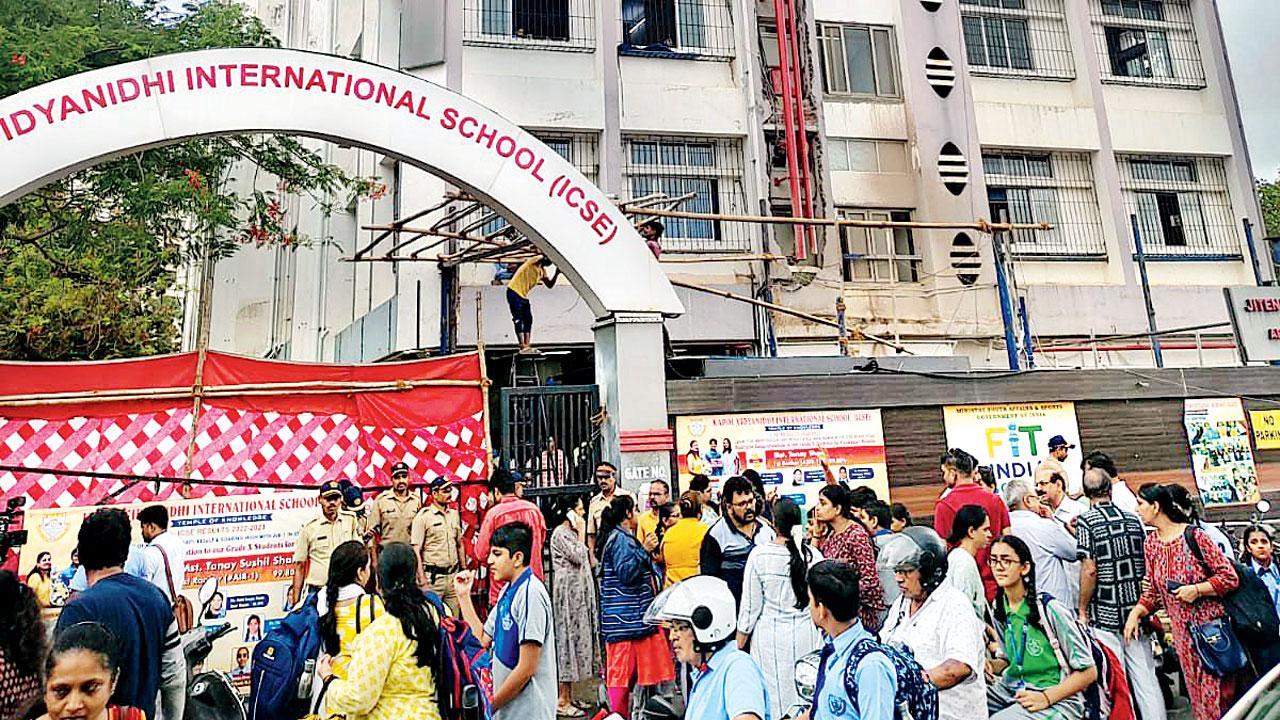Kandivli school says that as a linguistic minority institution, they don’t have to adhere to act

File Pic
Key Highlights
- School in Kandivli has taken its case to the Bombay High Court
- The school filed a writ petition against the state government
- They have invoked a significant precedent set by the Supreme Court in 2014
Challenging the directives of the Education Department, which threatened to shut down the school and revoke its recognition on the grounds of alleged violations of the Right to Education Act, the Kapol Vidyanidhi International School in Kandivli has taken its case to the Bombay High Court. Both the school’s management and the Kapol Vidyanidhi Trust, which runs the school, have underscored that as a linguistic (Gujarati) minority institution, they are not obligated to adhere to the provisions outlined in the RTE Act of 2009.
ADVERTISEMENT
The school filed a writ petition against the state government, the State Education Department, the BMC, and education officials on August 28. They have invoked a significant precedent set by the Supreme Court in 2014, which established that the RTE Act does not apply to either aided or unaided minority institutions.
The school management has emphasised that despite the minority status of the school, the education officers have compelled them to apply for RTE recognition which is mandatory under the RTE act 2009 and Maharashtra RTE rules 2011. The management in the petition has alleged that few parents instigated by one parent, have been filing repeated complaints against the school.
In their petition, the management also pointed out that the school principal, apprehensive of the potential repercussions outlined by the education officers, had been compelled to seek RTE recognition. The warnings included the imminent closure of the school and the transfer of students to a nearby institution.
Reshma Hedge, principal of the school, was unavailable for comment. Vipul Shah, one of the parents, said, “Kapol school started functioning in 2002-2003, They got minority status in 2014 while the RTE Act came into existence in 2009 and Maharashtra RTE rules in 2011. They might be exempted from 25 per cent free seat reservation for underprivileged students, but Form-II or Namuna II (certifying compliance to RTE norms) is mandatory for all schools under RTE act. Penalty for not having Namuna II is Rs 1,00,000 one time and Rs 10,000 per day.”
He added, “There are many other violations by the school. They have not taken Building Occupancy Certificate since inception from 2002 till 2023. They have risked the lives of over 3,000 students for the past two decades.” Rohit Dandawate, president of Global Parents’ Teachers’ Association said, “No matter what, the RTE Act is applicable to all schools. An FIR needs to be registered against the management for failing to adhere to the education department’s order. Now the school has moved the high court against the rules and challenged the education department. We shall wait for the court’s verdict.”
 Subscribe today by clicking the link and stay updated with the latest news!" Click here!
Subscribe today by clicking the link and stay updated with the latest news!" Click here!







